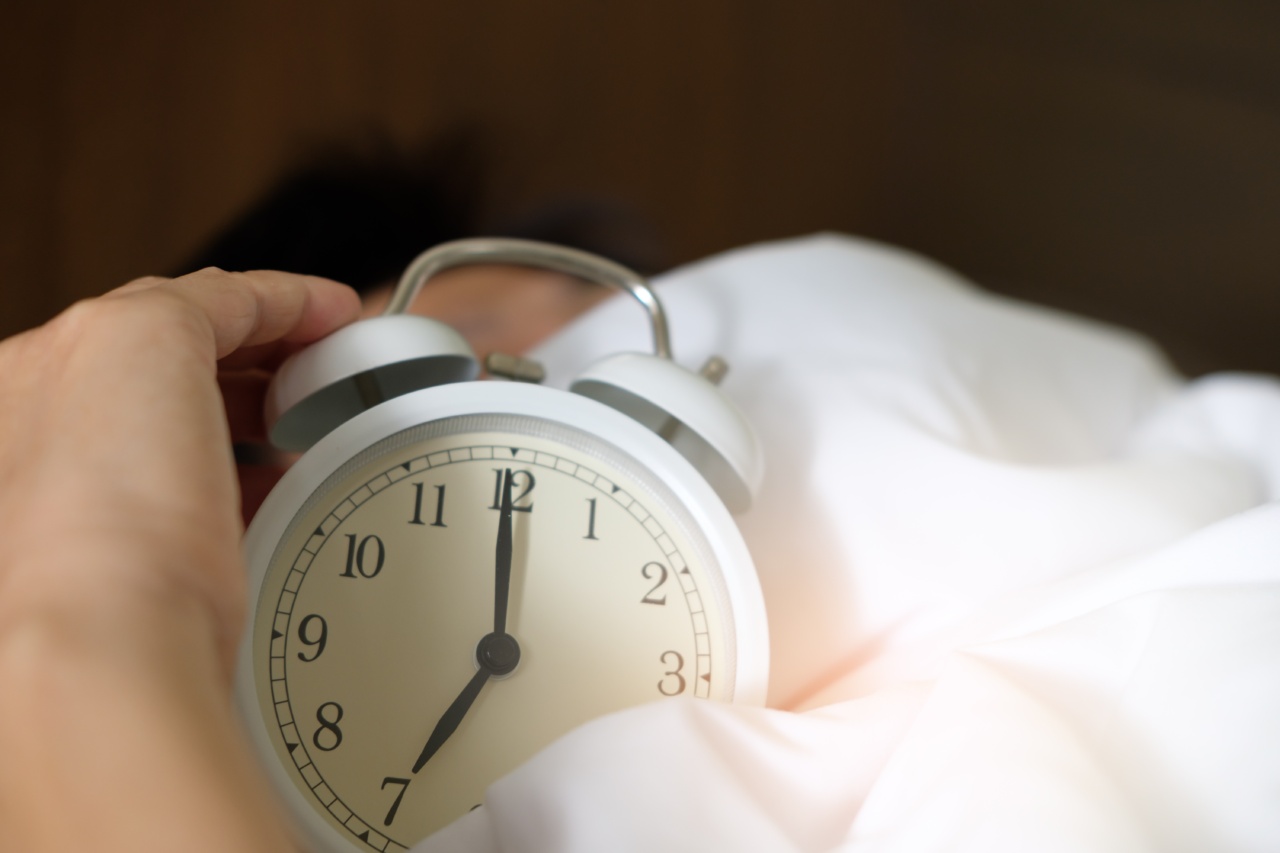For many people, getting out of bed in the morning is a struggle. Whether you’re not getting enough sleep or simply find it hard to get going, difficulty in morning awakening is a common issue that many people face.
Fortunately, there are a number of things you can do to help combat this problem and wake up feeling refreshed and energized each day.
1. Stick to a Sleep Schedule
One of the most effective ways to ensure that you wake up feeling refreshed is to establish a consistent sleep schedule. This means going to bed and waking up at roughly the same time each day, even on weekends.
When you stick to a sleep schedule, your body will be better able to regulate its internal clock and you’ll find it easier to fall asleep and wake up each day.
2. Avoid Stimulating Substances Before Bed
If you find yourself having a hard time falling asleep at night, it’s important to avoid consuming caffeine, alcohol, or other stimulating substances in the hours leading up to bedtime.
These substances can keep you awake and make it harder for you to fall asleep, which will leave you feeling groggy and tired in the morning.
3. Create a Relaxing Bedtime Routine
Another effective way to ensure that you wake up feeling refreshed is to create a relaxing bedtime routine. This might involve taking a warm bath, reading a book, or doing some gentle stretching before bed.
By cultivating a relaxing nighttime ritual, you’ll be sending a signal to your body that it’s time to wind down and get ready for sleep.
4. Invest in a Comfortable Bed and Pillows
If you find that you’re consistently waking up feeling groggy and tired, it may be time to invest in a more comfortable bed and pillows.
A good quality mattress and pillows can go a long way in helping you get a restful night’s sleep and waking up feeling refreshed and ready for the day ahead.
5. Get Plenty of Exercise
Regular exercise is important for overall health and wellbeing, and it can also help you sleep better at night.
When you get plenty of physical activity throughout the day, you’ll be better able to fall asleep quickly and stay asleep throughout the night. Just be sure to avoid exercising too close to bedtime, as this can actually make it harder for you to fall asleep.
6. Try a Natural Wake Up Light
If you find it difficult to wake up in the morning, you may want to consider investing in a natural wake up light.
These devices simulate a sunrise and gradually get brighter over the course of several minutes, helping to signal to your body that it’s time to wake up. This can be a great option for anyone who finds it difficult to wake up in the morning.
7. Avoid Using Your Phone or Computer in Bed
Many of us are guilty of scrolling through our phones or staring at our computers before bed, but doing so can actually interfere with your ability to get a good night’s sleep.
The blue light emitted by electronic devices can disrupt your circadian rhythm and make it harder for you to fall asleep. As such, it’s important to avoid using your phone or computer in bed, and instead, try reading a book or doing some relaxation exercises.
8. Practice Relaxation Techniques
If you find yourself feeling stressed or anxious in the lead up to bedtime, it’s important to practice relaxation techniques such as deep breathing, progressive muscle relaxation, or meditation.
These techniques can help to calm your mind and body, making it easier for you to fall asleep and wake up feeling refreshed.
9. Stick to a Healthy Diet
Your diet can have a big impact on your sleep quality, so it’s important to make sure that you’re eating a healthy and balanced diet. Avoid heavy or spicy meals in the evening, and instead, opt for lighter, healthier options.
Additionally, avoid consuming alcohol or caffeine in the hours leading up to bedtime.
10. Consider Speaking with Your Doctor
If you’ve tried all of these strategies and are still having difficulty waking up feeling refreshed each morning, it may be worth speaking with your doctor.
They can help to rule out any underlying medical conditions that may be contributing to your sleep difficulties, and may recommend further interventions or therapies to help improve your sleep quality.





























